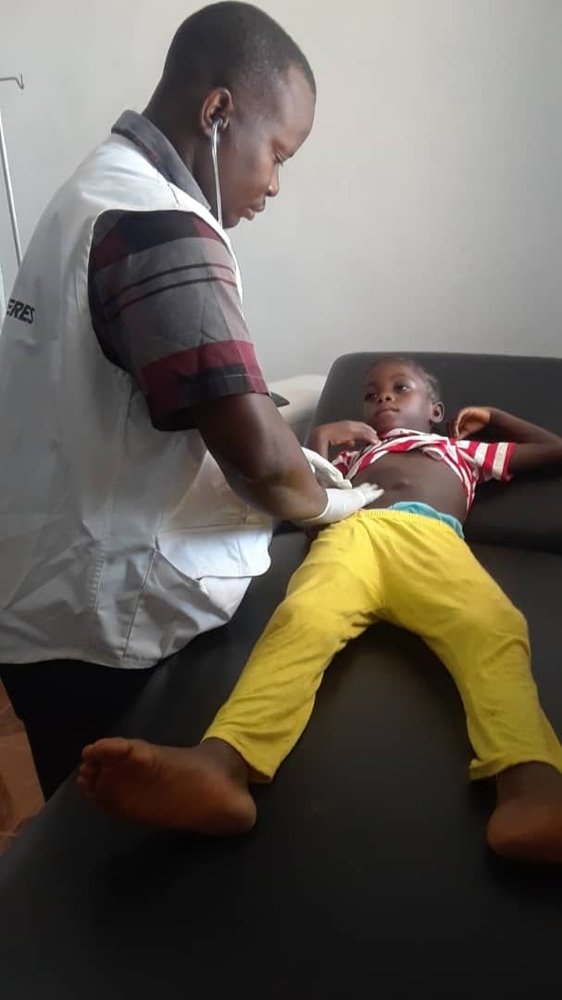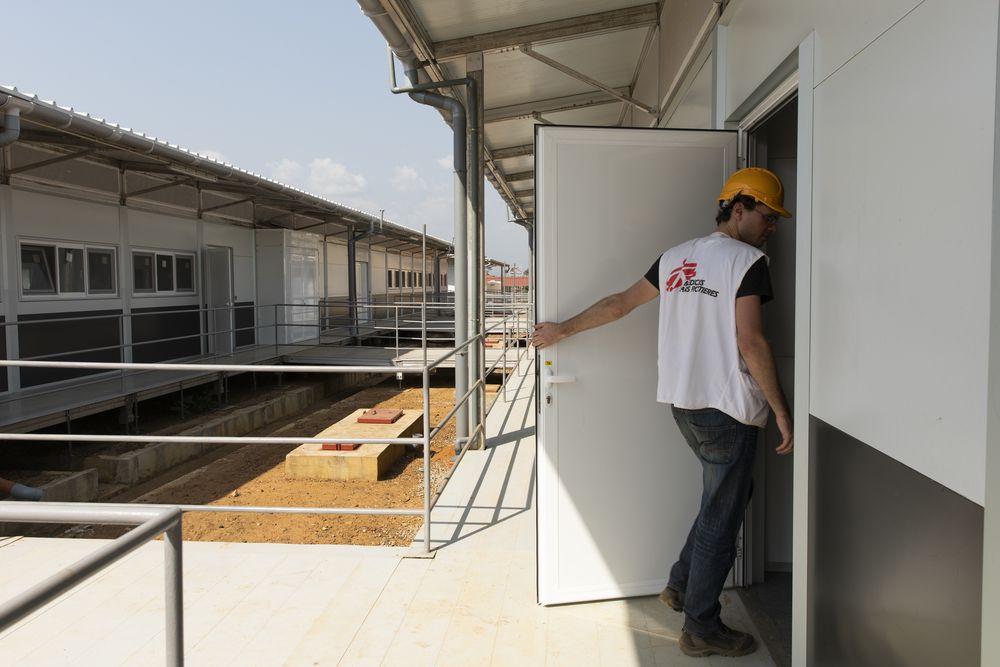Mohamed Momoh, a clinical officer with the Doctors Without Borders, was born in Bo, Sierra Leone. Having worked as a medic through the devastating Ebola outbreak of 2014, he shares his story and his hopes for the future of his country.
I decided to study medicine because of an incident that happened when I was a teenager.
How it started
My six-year-old niece was unwell. My sister took her to a doctor and she was informed that surgical intervention was required. As a single parent, the cost of the surgery was too high for her to bear.
My niece’s condition deteriorated.
Frustrated and worried for my sister and her baby, I shared what I was going through with my school mates. It just happened that my classmate’s brother was able to intervene, and he assisted my sister with the money to enable the surgery.
My niece was saved because of the passion, care and love from this person.
I was enthused, and my passion to help others was kindled. From that point, I knew I wanted to help children access timely, cost-effective health care.
In Sierra Leone, the cost of accessing care is a strain for families, especially for children under five, pregnant women, and lactating mothers. This financial strain can have a negative impact on health-seeking behaviour (how likely you are to seek medical help) for anyone really.

Tremendous challenges
After my university studies, I worked on the children’s ward and in the outpatient department in Panguma Mission Hospital, Kenema District. I was there for eight months. In 2016, I moved to Kambia private hospital where I worked as a clinical health officer for one year.
As medics in Sierra Leone, we are confronted with tremendous challenges.
One of the things we face is the limited access to healthcare due to lack of proper infrastructure. There is a dire lack of equipped health staff, and this shortfall was compounded by the deaths of an estimated 10 per cent of the country’s medics during the Ebola epidemic in 2014.
Areas like Gorama Mende and Wandor (GMW) Chiefdom, where I am presently working, are further disadvantaged due to their remoteness.
And with a struggling health system recuperating from the Ebola outbreak, it is no wonder that the country has among the world’s highest maternal and child mortality.
Ebola
The Ebola outbreak traumatised us. I was not infected but I lost someone very close to me. My best friend, both alumnus from the same university, contacted the virus and later died of Ebola in November 2016.
On top of being sad, I was terrified. I was confused. I deliberated whether I should resign or stay on the job.
Was being a medic during an Ebola outbreak a suicide mission?
But I hung in there. I came to this job to save lives, despite the grave risks.
Working with MSF
Since I started working for MSF, my life has changed in diverse ways. I have not only improved my skills and confidence, but I have also gained respect in my home area and in the community, I am currently working.
As a clinical health officer, we aim to provide essential health care services, with the objective of reducing the number of deaths in our area.
Working in close collaboration with the Ministry of Health and Sanitation, among other activities, we offer free health care services to children under five years old, and to pregnant women.
I recall one day in 2018 I was on a field visit to Falla community health post, about one hour from the base. We came across a woman in breech labour. This is a very dangerous situation for both the mother and the baby, where the baby is coming feet- or bottom-first.
With my heightened skills and handiness in the breech delivery manoeuvre, I was able to deliver the baby successfully. But he was not breathing. I called for help.
My colleague rushed in and together we resuscitated the baby.
The parents were so happy that they named him after me. They did not have to, I still feel very humbled and importantly honoured to have saved that mother and child’s life.
New hospital, new hope

Coming across such experiences, I want to further contribute to the development and strengthening of the health care system in Gorama Mende and Wandor Chiefdom, in Bo but also in the entire country by becoming an advocate for access to quality health care and timely access in remote areas.
I am very encouraged that with the newly opened Kenema MSF hospital in Hangha town, more lives will be saved. The medical activities and the dedication of the team will surely curtail the high number of child deaths that we have in this area.
As a medic, working day-to-day with often very sick children it is important to balance work and life. Getting this right can contribute immensely to stress reduction.
I find this balance by playing and watching football and I am always happy to be with my family: my two children, my wife and friends. They are a constant reminder of why I should care in bringing wellbeing and healing to my patients.
Read more about MSF's activities in Sierra Leon